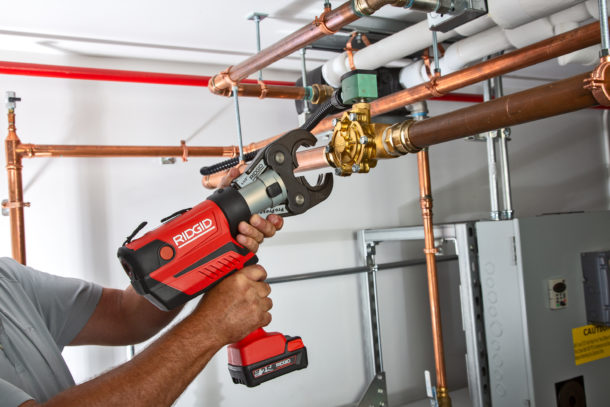Within the plumbing industry, there are so many different products and materials that are critical to carrying out the tasks needed. They say a shoddy workman blames their tools but, in fact, the better the tools, the better the work they can carry out. So how can plumbers check that their equipment is of a Read more
Product Quality
Within the plumbing industry, there are so many different products and materials that are critical to carrying out the tasks needed. They say a shoddy workman blames their tools but, in fact, the better the tools, the better the work they can carry out. So how can plumbers check that their equipment is of a high quality and how can they maintain it?
Examine Build Quality
One of the best approaches is very simply to inspect the build quality of the equipment. While many organizations will have very strict welding and manufacturing capabilities you should inspect the build quality to ensure there is attention to detail and solid construction. Any equipment that’s poorly built is more likely to wear out.
Any beginner plumber needs to remember that the more you invest at the outset in terms of quality equipment, the better the results will be. Plumbing tools are subjected to tough conditions, so they must withstand wear and tear. Equipment made from materials that are built to handle the demands of plumbing work is about the overall build quality that you should examine and, more importantly, examine prior to purchasing.

Researching Trusted Brands
If there is one problem many tradespeople make at the very outset of their journey, it’s that they opt for cheaper items rather than trusted ones. It’s obvious as to why, but when we go for brands with a history of producing reliable equipment, this will result in better products. The plumbing industry has a number of top plumbing brands such as American Standard, but you also need to ensure that you have an understanding of how these brands will translate to the right end products.
When looking for equipment, you should see if there’s any relevant approvals or certifications from industry standards organizations. In the plumbing industry, standards such as the Uniform Plumbing Code (UPC) are in place to govern the installation and inspection of plumbing systems to promote the public’s health and safety welfare. Additionally, the International Plumbing Code provides requirements for plumbing systems in a wide variety of buildings, including commercial and residential. Plumbing providers that have approvals from these industry standards will naturally indicate the equipment meets specific safety and quality standards.
Evaluate the Warranty and Support
Any equipment will come with guarantees or warranties. Manufacturers’ willingness to stand behind their products will always be a testament to their quality. A very simple thing but these warranties will give you a far better understanding of the company and what they do to provide great customer support. The customer support part is always another key area to understand in case of any potential problems or if you have any questions.
Checking for Compatibility
We all need to ensure that when we are conducting specialized tasks, we need the appropriate equipment. Specialized tools are going to improve efficiency and bring about more accurate results. For example, if the equipment is part of a larger plumbing system, we need to make sure that it’s not just compatible with those specialized systems but is also able to work in tandem with our existing tools and systems.
Testing the Equipment
If possible, we should test the equipment prior to purchasing. We need to have an understanding as to whether a tool like a pipe cutter is able to cut accurately and smoothly, which can maximize safety and precision. Equipment is subject to tough conditions, so it has to withstand wear and tear. We need to ensure the equipment is made from materials that can handle the demands of the job in question. Equipment that requires precise adjustments or measurements should provide easy and accurate markings. Ensuring that we test for functionality, but also look for ergonomic designs, can make life easier for us.
Plumbing is a labor-intensive practice, and therefore, we need to reduce fatigue during long jobs. An understanding of how user-friendly that equipment is will naturally have an impact on its cost, but we must give great consideration as to whether it’s a worthwhile investment. Lower prices may indicate lower quality, but excessively high prices don’t always guarantee great quality either. We should always seek recommendations from plumbing suppliers or stores who will have insights into what is popular amongst professionals, but is actually built for purpose.
The task of checking for the right equipment and ensuring you have the tools you need for a successful job is about the overall recommendations made by industry professionals, but it’s important to trust your instincts as well. The right equipment should inspire confidence in you and feel reliable from the moment you handle it.
